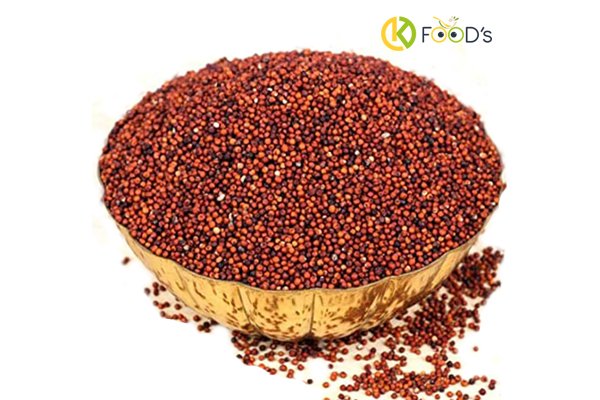Nutrition
Health benefits of black-eyed beans

Black-eyed beans
Black-eyed peas are leguminous crops that contain many nutrients, including vitamin A, folate, and manganese. They contain high amounts of fibre, which can aid digestion and feed beneficial gut bacteria.
-Aids digestion
Black-eyed peas can help improve digestion for some people due to their fibre content, which can help promote regular bowel movements.
This may be particularly helpful for those who experience occasional constipation. Black-eyed peas contain prebiotic fibre which feeds the beneficial bacteria in the digestive tract.
However, it is worth noting that for some people with digestive conditions, the high amount of fibre in black-eyed peas may be problematic.
-Lowers blood pressure and inflammation
Black-eyed peas’ closest relative, cowpeas, lowers the risk of diabetes, reducesinflammation levels and stabilisesblood pressure.
-Helps maintain a healthy weight
Black-eyed peas are a rich source of complex carbohydrates, which take longer to digest than simple carbohydrates. As a result, people who eat them may feel fuller for longer, which may help with reaching a moderate weight.
-Lowers cholesterol
Regular consumption of legumes can help lower low-density lipoprotein (LDL) or “bad” cholesterol. Lowering high cholesterol can reduce the risk of heart disease.
Additionally, a 2017 reviewTrusted Source found that a diet generally rich in fibre may reduce the risk of coronary heart diseases.
-Supports eye and skin health
Black-eyed peas contain an impressive amount of beta carotene, which the body converts to vitamin A. In one serving alone, black-eyed peas meet a quarter of an adult’s daily vitamin A needs.
Vitamin A helps maintain healthy eyes and skin, protecting and lubricating the mucous.
Source; Recipejoint
Nutrition
Koose (fried cowpea bean cake)

Ingredients
• 300 grams of cowpea (dehusked) flour
• 200 ml of oil (for deep frying)
• 20 grams of ginger
• 10 grams of fresh or dry hot pepper
• 50 grams of onion (optional)
• 2 tablespoonfuls of salt
• 1000 ml water
Preparation
-Wash, peel ginger, hot pepper, onion (Grind or blend)
-Mix water with cowpea flour and beat until mixture is fluffy
-Add ground spices (ginger, hot pepper and onion) and salt to cowpea flour in bits and continue to beat
-Add water and stir to mix evenly and to obtain a soft dropping consistency cooking
-Put oil on fire and add chopped onions
-Drop mixture by spoonfuls in the hot oil and fry, turning occasionally until golden brown (frying may take about three minutes)
– Take the cakes from hot oil, drain in a colander and place on kitchen paper to extract excess oil
• Serve hot with corn, millet or sorghum porridge or alone as a snack
By Linda Abrefi Wadie
Nutrition
Benefits of millet

– High nutritional value: Millets are a rich source of nutrients, including protein, fibre, and micronutrients like magnesium, potassium, and zinc.
It also has a low glycemic index. This makes it an ideal food for people with diabetes or anyone looking to maintain stable blood sugar levels.
– Gluten free: Millet is naturally gluten-free, making it an excellent choice for those with celiac disease or gluten intolerance. It’s also a great alternative to wheat for people looking to reduce their gluten intake.
-Promotes digestive health – The high fibre content in millet makes it an excellent food for promoting digestive health. It can help to prevent constipation and reduce the risk of colon cancer.
-Aids weight loss – Millets have a low calorie count, and they are an excellent food product for weight loss. They help to maintain energy levels throughout the day, preventing the need for constant snacking and overeating. Millets also keep you satiated for longer than other carbohydrates, as they take time to get digested and absorbed into your body.
-Keeps blood sugar levels low – Millets have a low glycaemic index, which makes them an excellent food for regulating blood sugar levels. Consuming millets regularly can lower your risk of developing diabetes.
-Boosts Immunity – Millets provide a great source of protein and can help develop and strengthen your immunity. A stronger immune system means fewer chances of you catching diseases.
-Reduces cardiovascular risks – The essential fats found in millets provide our bodies with good fats which prevent excess fat storage, effectively lowering the risk of high cholesterol, strokes, and other heart complaints. The potassium content in millets regulates your blood pressure and optimises your circulatory system.
-Prevents asthma – The magnesium content in millets can reduce the frequency and severity of migraines and asthma complaints. Unlike wheat, they do not contain the allergens that lead to asthma and wheezing.
-Helps your digestion – Millets are a rich fibre source that benefits digestion by alleviating bloating, gas, cramping, and constipation. Good digestion keeps issues like gastric/colon cancer and kidney/liver complaints away.
-Acts as an antioxidant – Millets help the body detox because of their antioxidant properties. Quercetin, curcumin, ellagic acid, and other valuable catechins flush out toxins from your body and neutralise the enzymatic actions of your organs.
Source: wafflemill.com







